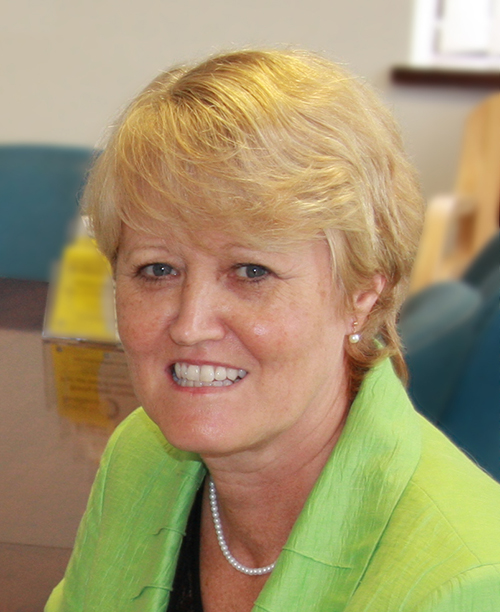World’s largest medical laboratory management conference will take place on April 26-27 and showcase how innovative labs are delivering more value with lab testing services
By now, most pathologists and clinical laboratory professionals recognize that healthcare is prepared to accept the use of whole human genome sequencing for diagnostic and therapeutic purposes. It is no longer a question of “will it happen?” Rather, the questions are now: “how fast will this happen and what must my lab do to be ready to support physicians in how they use the knowledge derived from whole human genome sequencing?”
Both of these questions will be answered by two globally-respected experts in the rapidly-advancing field of genetic medicine on April 26-27, 2016, at the 21st annual Executive War College on Laboratory and Pathology Management.
Whole Human Gene Sequencing at Human Longevity, Inc.
In a presentation titled, “Genome Sequencing and Genetic Medicine: How It’s Changing Healthcare Today and What Providers Can Expect Moving Forward,” Brad Perkins, MD, will share developments at Human Longevity, Inc., which is based in San Diego, Calif. Perkins is the Chief Medical Officer for his company, which was founded by J. Craig Venter, PhD, and Peter Diamandis, Founder and CEO of the X Prize Foundation.

Brad Perkins, MD, MBA, Chief Medical Officer at Human Longevity, Inc. (HLI), is a visionary physician, scientist, and executive who is responsible for leading all clinical and therapeutic operations at HLI. This includes collecting and utilizing phenotype data, development of the consumer clinics business, and guiding stem cell therapeutics. (Photo and caption copyright: Human Longevity, Inc.)
According to Perkins, Human Longevity, Inc., has already sequenced 24,000 whole human genomes and has analyzed more than 10,000 of these. He will discuss what the researchers at HLI have learned to date that has potential to be useful in diagnosing cancer and other diseases, and helping physicians understand what therapeutic options would be of greatest benefit to individual patients.
National Health Service’s 100,000 Genome Project
Following this presentation, Professor Sue Hill, Clinical Lead for the United Kingdom’s National Health Service (NHS), will discuss the world’s biggest and most ambitious whole human genome sequencing effort. It is called 100,000 Genomes Project and is on schedule to sequence 100,000 human genomes by 2017.

Professor Sue Hill was appointed Chief Scientific Officer at the Department of Health in 2002 and is the professional head of the 50,000 strong healthcare science workforce in the NHS and related organizations. This includes more than 45 specialist fields in science, technology, engineering, and mathematics related to health. (Photo and caption copyright: The Centre for Science and Policy, University of Cambridge.)
The project is being conducted by Genomics England, a company wholly-owned and funded by the Department of Health. The genomes of approximately 70,000 NHS patients with cancer or a rare disease, some of their families will be sequenced. The goal is to have the genomes sequenced by 2017.
Professor Hill’s presentation is titled, “How Data from the United Kingdom’s 100,000 Genomes Project Is Contributing to New Clinical Care Pathways in the NHS that Advance Personalized Medicine and Improve Patient Outcomes.” She will discuss the history of this project and its goals. Of greater significance to pathologists and clinical laboratory managers here in the United States, Hill will share how new knowledge gained from the study of these genomes will be developed into clinical pathways, then introduced into regular medical practice by physicians in the United Kingdom.
More Presentations as to How Clinical Labs Are Using Molecular and Genetic Tests
To complement the presentations of Perkins and Hill, other speakers at this year’s Executive War College will discuss how their clinical laboratories and pathology groups are supporting clinical care with molecular assays and multi-gene test panels that incorporate the newest insights into the role and function of the human proteome and genome. A sampling of these speakers and their topics includes:
• “Pharmacogenomics as Pandora’s Box: What Early Successes and Setbacks are Teaching Labs and Physicians as Precision Medicine Moves Forward,” by Don Rule, CEO, Translational Software, Bellevue, Wash.;
• “Managing Genetic Test Utilization: Doing the Right Thing for Patients while Supporting Physicians and Managing Costs,” by Lee Zellmer, Senior Laboratory Genetic Counselor, Children’s Mercy Hospital, Kansas City, Missouri; and, Amy Nystrom, Chief Business Officer, PreventionGenetics, Marshfield, Wis.;
• “What’s Hot and What’s Not in Molecular Diagnostics and Genetic Testing for Community Hospital Labs: How to Establish the Right Menu of Testing Services for Your Physician Community,” by Wayne Grody, MD, PhD, Director, Molecular Diagnostic Laboratories and Clinical Genomics Center, UCLA Medical Center, Los Angeles, Calif.

It will be a record crowd of almost 900 pathologists, clinical laboratory managers, IVD executives, and medical laboratory consultants when the 21st annual Executive War College on Laboratory and Pathology Management convenes in New Orleans on April 26-27, 2016. Featured speakers will discuss new developments in whole human gene sequencing that have applications in clinical care. Pictured above is the General Session of the 2015 Executive War College. (Photo copyright: The Dark Report.)
Assessing the Clinical and Financial Future of Private Pathology Groups
Another important topic that is front and center at the upcoming Executive War College is the future of the anatomic pathology private group practice. This business model has dominated surgical pathology for several decades. Yet it now is threatened by multiple market forces in healthcare and laboratory medicine.
To help pathologists who are the business leaders of their group practices understand these threats—and learn what successful groups are doing to counter them—there will be a full-day seminar, titled: “Private Practice Pathology’s Present and Future: What’s Working … What’s Not … with Strategies to Protect and Enhance Pathologist Income.”
These are just the highlights of the sessions and expert speakers scheduled to appear at the 21st annual Executive War College in New Orleans on April 26-27. Full details about the conference can be found with this link. (Or copy the URL and paste into your web browser: http://www.executivewarcollege.com.)
Speakers, session topics, and the agenda can be viewed at this link. (Or copy the URL and paste into your web browser: http://www.executivewarcollege.com/agenda.)
Make your plans today to join almost 900 of the nation’s most innovative and successful clinical lab administrators, pathologist business leaders, and their practice administrators, IVD executives, and lab industry consultants. Register now to reserve your place. It will be one of the smartest management decisions you make during all of 2016!
—Michael McBride
Related Information:
To see the speakers, sessions, and agenda for Executive War College 2016



